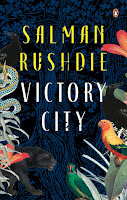
Lucknow Boy
By Vinod Mehta
Vinod Mehta was what I wanted to be. My heroes in my youth were MJ Akbar, Arun Shourie and then in my adult adolescence, Vinod Mehta. Men of crusading zeal, of the written word, out to prove a pen mightier than a sword. In a more tainted, grey adulthood, there is ambivalence about the profession and the people in it. Yet Vinod Mehta continues to remain on some sort of a pedestal, however rickety and crumbling it might be. He still wields the baton for a secular left wing India without toadying up to the commies (though his sympathy for the Maoists fills me with the same confusing discomfort the world as a whole does today). So I picked up his memoir not completely sure if I would like the man behind the image, but needing to know if I would.
Lucknow Boy is a racy read. Mehta proves to be an interesting raconteur though an average writer. His background proves to be rather unremarkable and un-intriguing and not quite prophetic of his adult achievements. So they remain quite skip-able. The interesting parts of the book are his run-ins with his various proprietors and assorted politicians. And there is a long list of them. What is also absorbing is his view of and interactions with some famous people – Dhirubhai and Sharad Pawar, Shobha De and Arundhati Roy. And there is of course, his continued fascination with Sonia Gandhi (his section on her is strangely revealing and I am not sure it was intended to be – his apparent joy in seeing her comfortable and relaxed and laughing with her guard down in front of friends is almost lover-like).
There is history here, the lived-in, news-making, journalistic-coup-type chronicle of current events, sure to become the Ramachandra Guha variety of history some day. The coverage of milestone elections that Outlook polls get wrong consistently, the Vajpayee-Advani tussle, the cricket match-fixing episodes and Manoj Prabhakar, the ‘mole-in-the-cabinet’ Seymour Hersh/ Morarji Desai story and of course the Radia tapes. It is a fascinating cocktail of news-making that Mehta dishes out, in quite an absorbing, no-holds-barred way. And what makes it quite endearing is the lightness with which most of the stories are handled – there is little rancour or bitterness even towards the people he so obviously despises (Pawar, Brajesh Mishra, Ambani) and there is little fawning over people he clearly likes (Arundhati Roy, Naipaul, Sonia Gandhi).
Through it all Mehta comes out as someone who grew into his role as one of India’s foremost editors with little preparation, learning as he went along. Some of his musings on his profession are thought-provoking (recommending scepticism rather than cynicism, for instance), though rarely original. Lucknow Boy is a good read. And Vinod Mehta comes across as forthright and unpretentious, with at least a modicum of solidity in a belief system honed over the years. His heroes are Orwell and Greene and they are great heroes to have for sure. But Mehta is not going to be mistaken for an intellectual. He has a home-grown sense of right and wrong and that proves ultimately to be the best part of the man.




